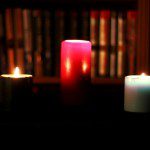Earlier this month Rhyd Wildermuth had a column on The Wild Hunt telling the story of his pilgrimage to Newgrange for the Winter Solstice. If you haven’t read it yet I strongly encourage you to do so. Rhyd had the opportunity to do something few humans will ever get to do – not only was he inside the tomb at Newgrange at the Winter Solstice, he also had a clear day to fully experience the rising sun and the returning light.
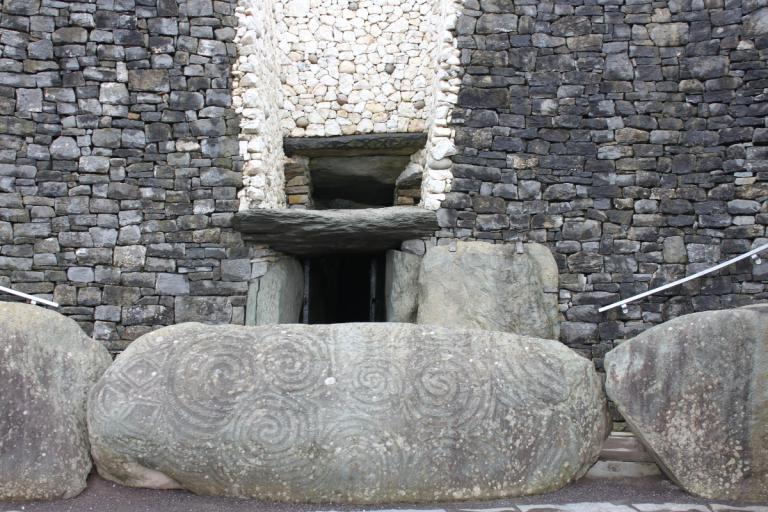
Each year about 30,000 people apply for this opportunity – 50 are chosen at random. I was at Newgrange last March and saw the entry box. I didn’t put my name in. I thought “even if I get selected I couldn’t afford another trip to Ireland.” Which was true… but when you’re presented with an extraordinary opportunity, extraordinary sacrifices are both appropriate and necessary.
Given Rhyd’s commitment to his Gods, his values, and his vision for a better world, I wasn’t surprised he found a way to get there. What I didn’t know was that he fighting an “inner atheist” the whole way, a voice in the back of his head telling him this was all a mistake, a waste of time and money, that there are no Gods or spirits and that what happens at Newgrange has a proper materialistic explanation and nothing more.
But after experiencing the Winter Solstice sunrise from within Newgrange, Rhyd said:
I left my inner atheist impaled upon Lugh’s shining spear in that tomb.
I have an inner atheist too. We get along OK. He keeps me humble, reminding me that there are other interpretations for my experiences. More importantly, he keeps reminding me that this world and the creatures in it matter at least as much the world of the Gods. But he isn’t allowed to run the show, and he isn’t allowed to spoil things for me or for others.
As P. Sufenas Virius Lupus pointed out in a comment, an inner atheist isn’t the same thing as an inner skeptic. I have both, and my inner skeptic has a much longer leash than my inner atheist. Neither of them have caused me any real problems.
But my inner fundamentalist sure did.
If you’ve been reading this blog for a while you’ve probably read parts of this story. I grew up in a small fundamentalist Baptist church. The people in that church were, for the most part, good people with good hearts who meant well. But their beliefs were toxic: “the saved” (most Baptists and a few other low-church Protestants) were going to heaven while “the unsaved” (95% of the world’s population) were going to hell.
At first I believed what I was taught – I was a small child and had no reason to think these figures of authority were lying to me. But when I got old enough to actually contemplate what was being preached, it didn’t add up – how could an all-powerful and all-loving God create a system wherein the vast majority of the sentient beings he created end up in eternal torment, all because they believed the wrong unprovable proposition?
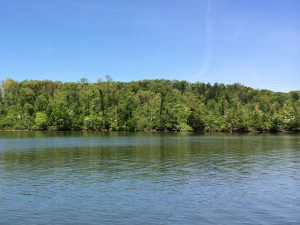 As I got older and expanded my reading, the foundations of fundamentalism crumbled further. Science showed a literal reading of the Bible was absurd, history showed the doctrines being preached did not originate with Jesus but in fact were much newer, literary studies showed the similarities between Biblical stories and the stories of other cultures in nearby regions. By the time I finished high school I was convinced the fundamentalists were absolutely wrong. I continued to attend my parents’ church (because it was easier than arguing about it) but I considered myself a universalist Christian.
As I got older and expanded my reading, the foundations of fundamentalism crumbled further. Science showed a literal reading of the Bible was absurd, history showed the doctrines being preached did not originate with Jesus but in fact were much newer, literary studies showed the similarities between Biblical stories and the stories of other cultures in nearby regions. By the time I finished high school I was convinced the fundamentalists were absolutely wrong. I continued to attend my parents’ church (because it was easier than arguing about it) but I considered myself a universalist Christian.
But all those years (particularly the early years) of listening to fundamentalist, Calvinist, and Evangelical doctrines being preached and taught didn’t just disappear. Every time I’d channel-surf onto a TV preacher or stumble across one of their favorite Bible verses those old fears would resurface. What if I was wrong? Was I really going to hell? I still had an inner fundamentalist who was doing his best to bring me right back to where I was at 8 years old, believing all the cruel absurdities because authority figures told me they were true.
When I discovered Paganism I moved further in the right direction, but my inner fundamentalist didn’t go away. He was one of the reasons (though far from the only reason) I spent my first eight years dabbling, unwilling to commit to consistent practice.
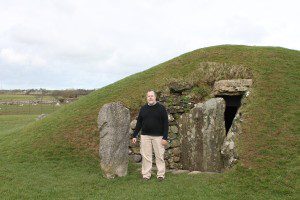
When I had my defining moment on Thanksgiving night 2001, I finally started doing the things I needed to do to move on from fundamentalism. I studied liberal Christianity and Buddhism. I read the Welsh Mabinogi and the Norse Edda. Since dabbling in Wicca hadn’t done anything for me, I explored Druidry and found my spiritual home. And I wasn’t just reading, I was practicing: meditating, praying, performing rituals, spending time outside mindfully experiencing Nature.
But my inner fundamentalist was still there, still whispering it was all “a lie of the devil.” I showed him the evidence I had found – he ignored it and kept whispering “what if you’re wrong?”
My inner fundamentalist wasn’t an intellectual phenomena and he couldn’t be killed through intellectual means. He was an emotional and spiritual phenomena and that’s how he had to be fought.
Individual practice led to a need for group practice and a short search led to Denton CUUPS. The founding group had been discussing initiation for a couple years – when I joined I started pushing to do it sooner rather than later. We developed a ritual and we set a date to do it.
My inner fundamentalist screamed in protest.
Being a relatively inexperienced group of UU Pagans, we called our initiation a “ritual of dedication and covenant” and we kept it fairly mild. There were no initiatory ordeals. But I had an ordeal. Oh, did I have an ordeal. Here are two excerpts from my private journal at the time.
I’m still struggling with taking formal vows to Pagan gods (even though I’ve already done it on my own). This is not surprising, considering my life-long fear that I was doing SOMEthing wrong (which borders on paranoia, and occasionally crosses that line), and my upbringing in the “do it my way or you’re going to hell” Baptist church.
The ordeal continues, and more importantly, I’m still having doubts. This being October, Pat Robertson (why do you continue watching something that only irritates you???) ran a piece on a witch who converted to charismatic Christianity, and repeated the fundamentalist line that their way is the only way.
My inner fundamentalist did his best to get me to turn back. But I knew where that path led and I had no desire to go there again. Still he kept whispering “but what if you’re wrong?” Here’s another excerpt from my private journal, about three weeks before the initiation.
There is no way you can KNOW which way is correct. You can’t know that fundamentalist Christianity is wrong any more than you can know it’s right any more than you can know the Muslims aren’t right or the atheists aren’t right. In the end, you have to have the courage to move forward as though your beliefs were absolutely true, even if you can’t be absolutely sure they are.
This is the ordeal you’re in. You’ve said what you believe – now you have to live it.
We performed the ritual. The details are oath-bound, and although we haven’t used this ritual in eight years, I will continue to honor my oath. I can say that after all the oaths and object lessons there was a formal investiture, and at that point I experienced something I had never felt before.
And it felt right.
My inner fundamentalist was silent and he wasn’t noticed by his absence. All that was there was the call of the Gods and of Nature, a call I continue answering to this day.
Is my inner fundamentalist dead? I hear him every now and then, but he’s not inside me any more. He’s like a ghost – not an active spirit, just the psychic remains of a long traumatic experience. He appears and then fades away, getting weaker and weaker over time.
And he doesn’t interfere in my life any more.
Rhyd Wildermuth’s story and mine share a key element: in both cases it took a powerful spiritual experience to crowd out years of negative spiritual conditioning.
They share another key element: in both cases we made a conscious decision to overrule our inner antagonists and keep working toward what we were called to do, despite the threats and taunts.
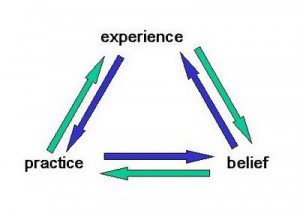 It matters what we believe, but belief alone accomplishes nothing. It matters what we do, but practice is no cure-all either. Our practices facilitate our experiences even though they cannot command them and our beliefs provide a framework to interpret them.
It matters what we believe, but belief alone accomplishes nothing. It matters what we do, but practice is no cure-all either. Our practices facilitate our experiences even though they cannot command them and our beliefs provide a framework to interpret them.
A foundation of evidence and reason are important, but inner atheists and inner fundamentalists cannot be reasoned away. It is in our first-hand experience of the mysteries of the Gods and Nature that our lives are changed.



